Hair dyes: types and tips for choosing
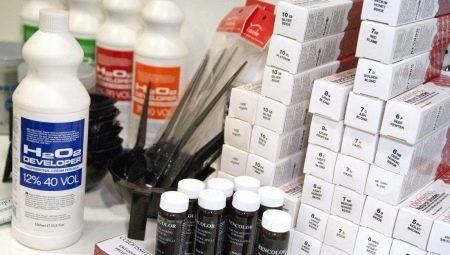
Hair dye has become a part of everyday life for most women. Today, stores offer a fairly wide range of types of hair dyes. It is sometimes not easy to understand the advantages of different types of paint, because they all differ by manufacturer, consistency, and also a palette of shades.
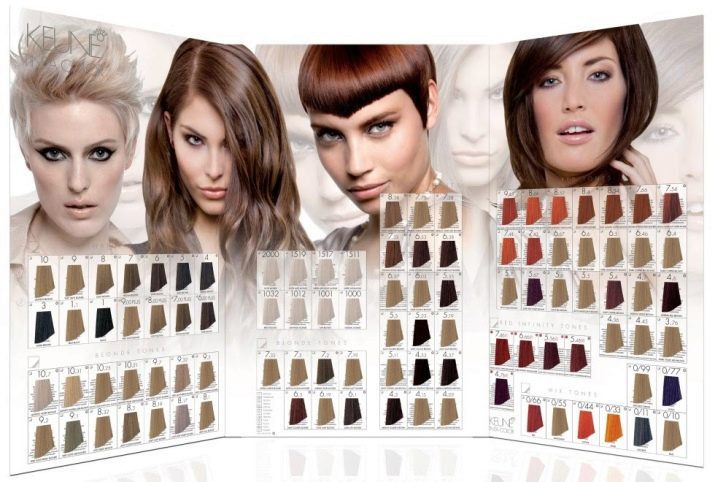
Views
There are several types of hair coloring products. Let's consider them in more detail.
Cream paint
It is considered the most common coloring agent. Supermarkets and cosmetic stores offer a very wide selection of colors of this consistency, since cream paint, compared to other types of paint, is the most easy to use for coloring at home. Such products are divided into persistent paints that contain ammonia, and ammonia-free. The latter are based on a cream emulsion.
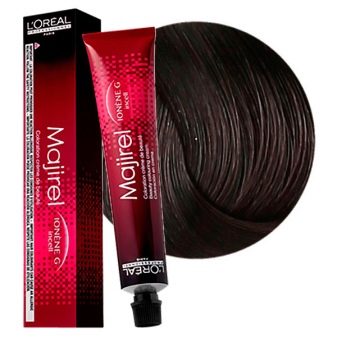
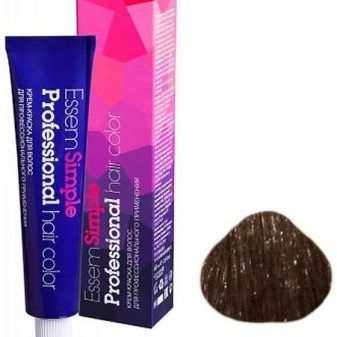
The advantage of persistent cream colors containing ammonia are the ability to keep color on the surface of the hair for a long time and a wide palette of shades. Due to their durability, such dyes are good for dyeing gray hair. Unfortunately, they are very aggressive to the hair structure as they cause hair to become thinner and dry.
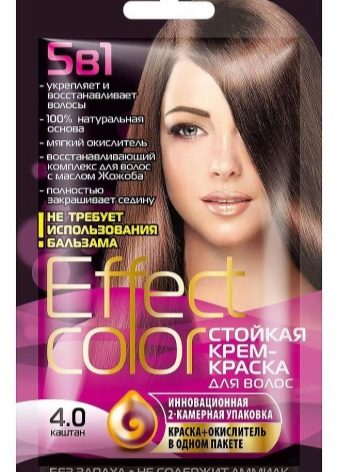
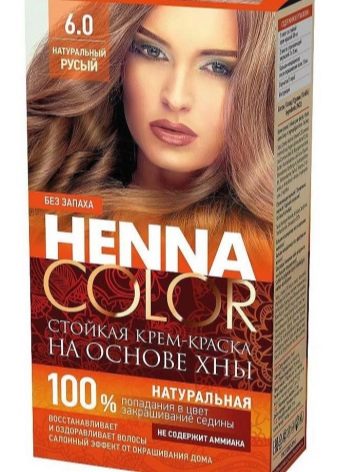
In addition, they are often the cause of allergic reactions and should therefore not be used without a prior allergy test. When in contact with the skin, persistent cream paints are rather difficult to wash off from it.
Cream dyes without ammonia color hair more carefully, do not cause fragility and thinning. They color the hair by enveloping it, without penetrating into the structure itself.The composition of ammonia-free cream paints often contains various nourishing and healing substances for hair: vitamins A, E, almond oil, olive oil, calendula extract and other medicines. Thanks to this composition, the hair is protected from the harmful effects of the environment.
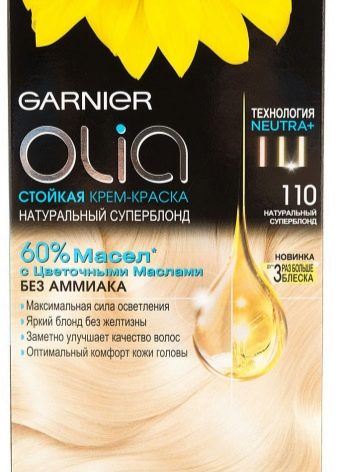
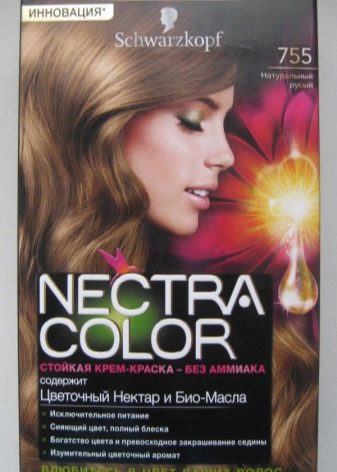
The disadvantages of ammonia-free cream paints include:
- fragility of coloring (without penetration into the structure of the hair, the paint is washed off faster);
- insufficiently effective painting of gray hair;
- such paints are more expensive than permanent ones;
- when self-dyeing, they are often distributed unevenly through the hair, so it is better to dye them in hairdressing salons with professionals.
Paint mousse
This paint can be called a novelty in the field of dyeing. This type of hair dye has a foam consistency and is very easy to use. Even with a light application to the hair, uniform hair coloring is maximized, since the dye-mousse can be gently distributed along the entire length of the hair due to its consistency.
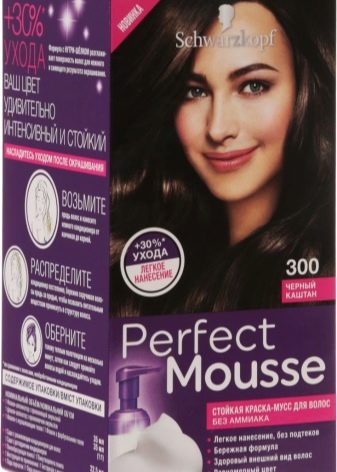

The advantages of the tool include its safety. This type of paint does not contain aggressive substances that destroy the hair structure. On the contrary, caring agents are often included in the composition, giving the hair smoothness and shine. Due to the safety of the paint and with strict adherence to the instructions for its use, staining can be carried out quite often.
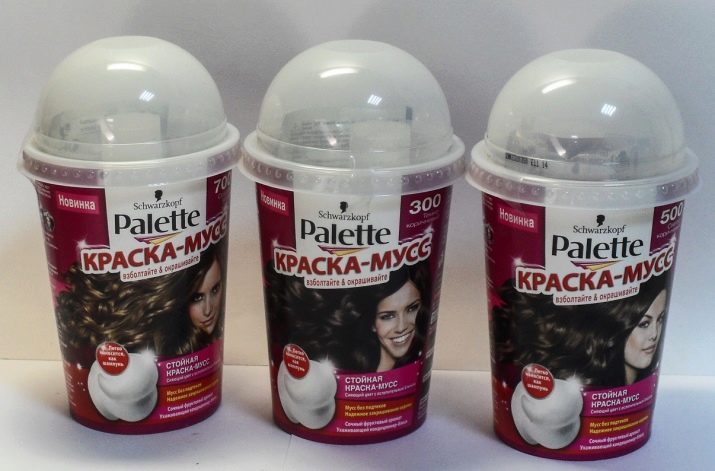
This type of paint is well suited for gently correcting the first signs of gray hair. It is easy to paint at home without assistance. In just 20-30 minutes, you can get a new hair color without burning, discomfort and unpleasant odor.
The disadvantages include the instability of the result - within a month the paint-mousse is completely washed off the hair. There is no variety of color palette, a maximum of 12-15 shades of natural tones. It is impossible to radically change hair color with paint-mousse - just a couple of tones.
Despite such disadvantages, mousse dye is popular among those who want to slightly adjust their hair shade, paint over their first gray hair or change their hair color for a short time.
Oil paint
Until recently, oil-based hair dyes could only be found in professional cosmetics, but today they are becoming more common and affordable for purchase.
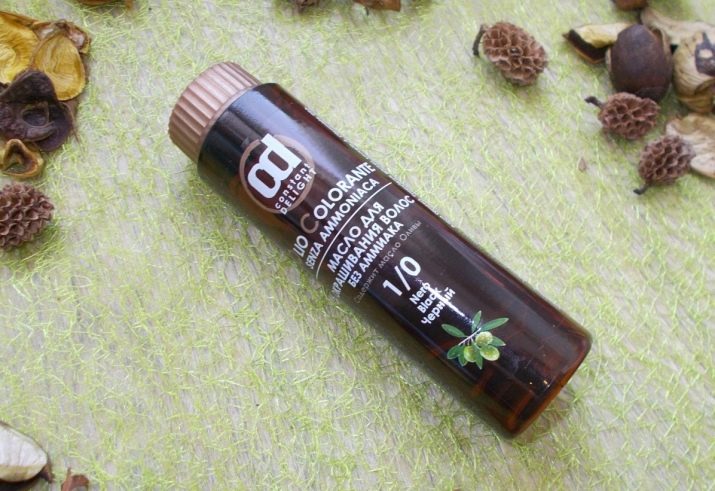
Oil paint consists of a pigment emulsion with an oil base, that is, it has caring properties due to the presence of oils in the composition. Thanks to the oils, such dyes penetrate well into the hair structure, but do not have any harmful effects. Even with constant use, oil paints do not have a damaging and drying effect. Most often, almond, olive, jojoba, argan oil and others are added to the composition of such paints.
When using oil paints, the composition itself is already a caring substance, therefore, after application, keratin, plant proteins, fat-soluble vitamins and essential amino acids penetrate into the hair.
The dye is well suited for painting gray hair, as it penetrates well into the hair structure and therefore the coloring can last up to several months. Oil paints have a fairly wide palette of colors; it is possible to paint them in bright and contrasting colors.
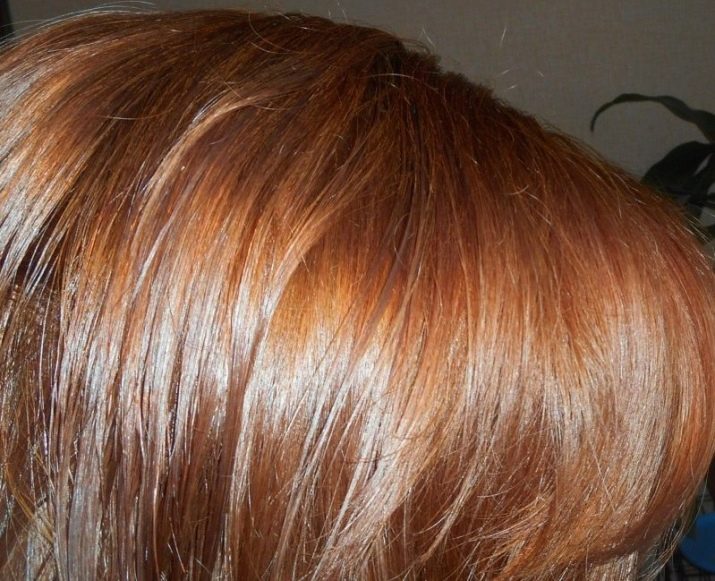
Among the disadvantages of oil paints, we can note the possibility of obtaining a color that is darker than it was stated in the palette. Dyeing to match the tone darker than necessary can occur when dyeing damaged hair with a porous structure. In this case, it is better to use paint one or two shades lighter. Another disadvantage of oil paints is the impossibility of giving cold shades to ash colors, since paints with a natural composition cannot contain a sufficient amount of ash pigments.
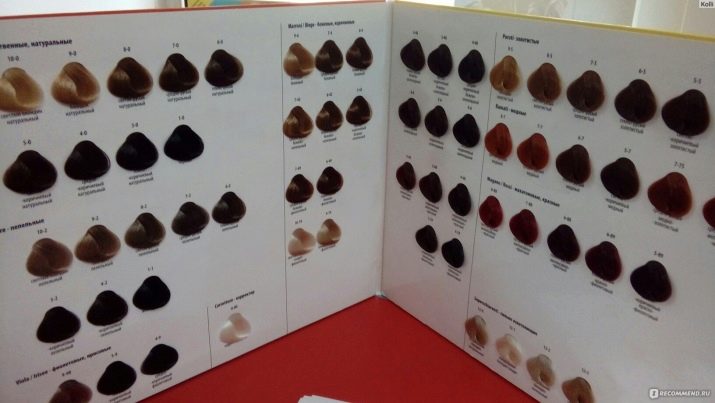
Spray paint
This coloring agent is considered the easiest to use, with its help you can quickly solve the problem of regrown hair roots or radically change your image. Spray paint is most often used to paint overgrown roots or incipient gray hair.
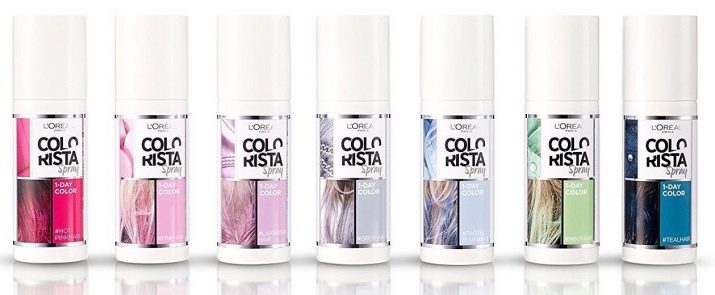
The main plus of the product is the speed of staining. In just a few sprays, you can get a completely new hair color, and the palette of shades is very wide with many contrasting and bright tones. As part of the spray for coloring there is a varnish that is absolutely harmless to the hair structure, allowing you to use spray paint often and without any harm. And also with the help of varnish in the composition, you can visually increase the volume of hair and fix the styling.
With the help of spray paint, you can not dye the entire hair band, but only individual strands in one or in different tones. There are stencils for creating a variety of hair patterns using these dyes.
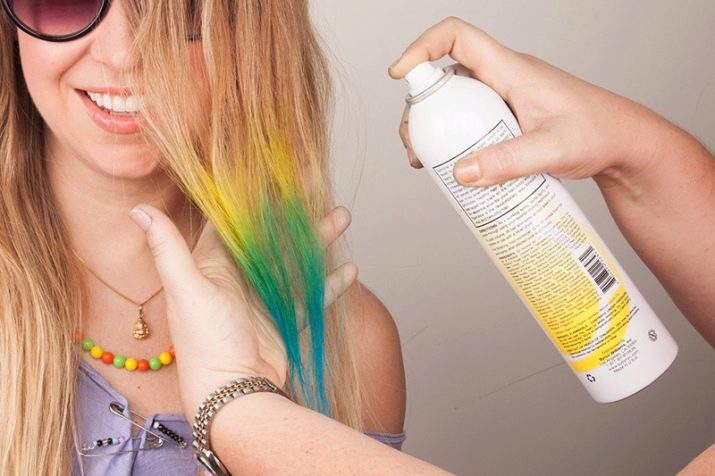
With a large number of advantages, this type of staining also has serious disadvantages. Spray paint is very fragile and can be completely washed off the hair in one or two shampoos. People with naturally light colored hair may have trouble returning to their color when this dye is rinsed off. Paint cans are often produced in small volumes, but at a high cost. Spray paint creates a film on the scalp and hair surface, which interferes with air exchange.
Due to the spray form of release, it is very difficult to prevent paint from getting on the skin and surrounding objects.
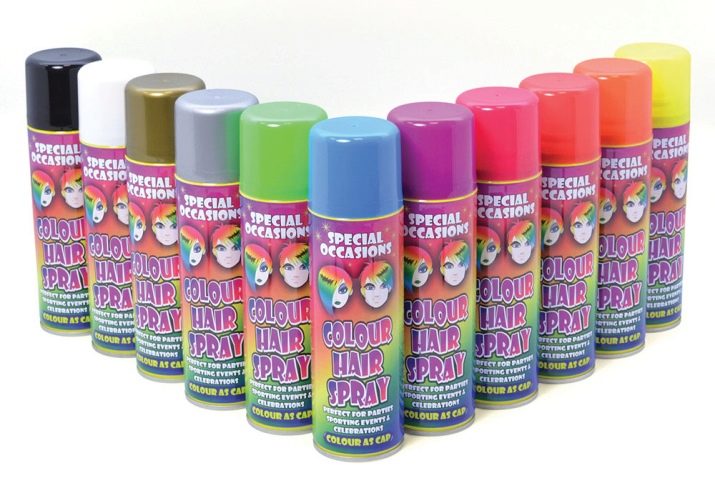
Shampoo paint (tint shampoo)
Coloring shampoo paint is very easy to use, since the coloring process itself is almost the same as a regular shampoo. For coloring, the paint is applied to wet hair, rubbed in and washed off with water. In some cases, you need to hold the composition on your hair for a short time.
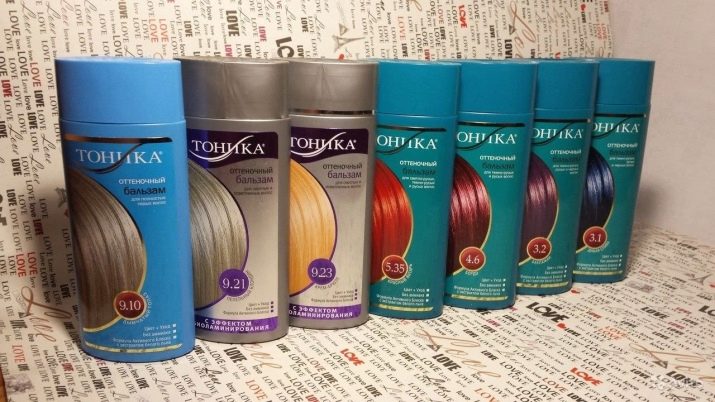
Another advantage of the shampoo paint is the absence of aggressive damaging substances in the composition. Often, oils are added to the composition to moisturize and give shine to the hair, or a variety of herbal extracts. The composition of such shampoos is absolutely safe, therefore it can be used even by pregnant women.
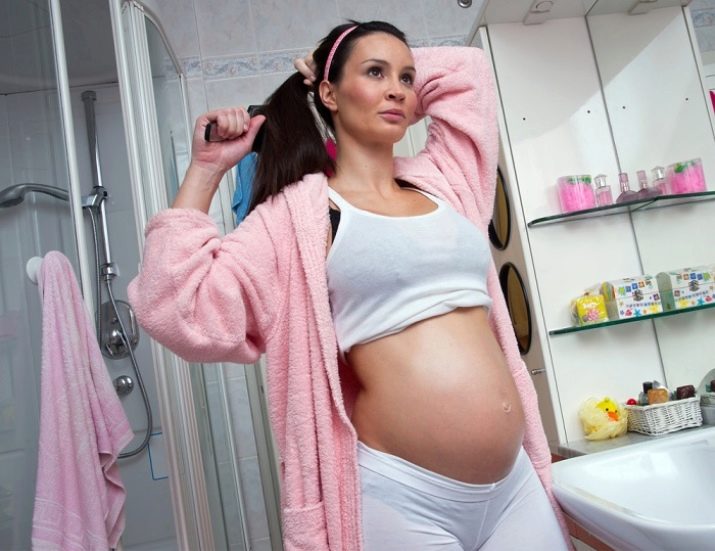
The shampoo paint is well washed off the hair, does not stain the skin, bathroom surfaces and a towel.
The downside is the low color fastness, the shade will last no more than eight washes on the hair. The best color results are obtained on dark hair, but color results can be unpredictable on light or gray hair. Another disadvantage is a small palette and a small opportunity to dye your hair in a contrasting color.
Color palette
With a huge number of different brands and manufacturers of hair dyes, there is a wide palette of shades. The same tones may look different depending on the original hair color. New trendy shades appear every season, but classic tones like copper have not diminished in popularity over time.
All the variety of the palette can be roughly divided into three groups: dark, light and bright.
Dark
Most women mistakenly believe that dark shades of hair dye visually add age. In fact, even light and ashy tones can age if the shade of the paint is not chosen correctly.
Dark staining has several advantages:
- qualitatively paints over gray hair;
- no need to pre-bleach hair;
- visually thickens the hair.
Dark shades are tones from one to six. The most popular dark color for coloring is considered black, brown shades take the second place.
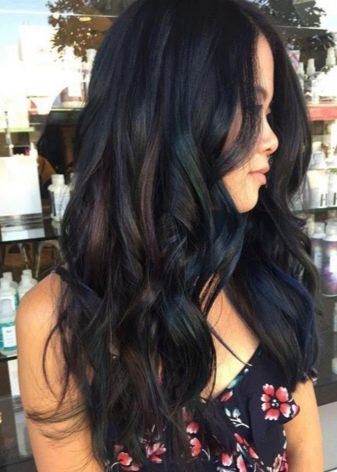
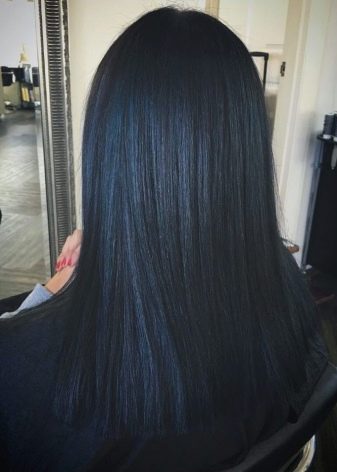
There is no pure black paint color, there is always some kind of shade, for example, black paint with a dark blue tint.This is because black paint is obtained by mixing several pigments and the final result is obtained from their proportions. Black color can cast a golden hue with a predominance of yellow pigment. If red prevails in the texture of the paint, then we get a wine or burgundy tint, and if blue prevails, then the tide will be dark blue or purple.
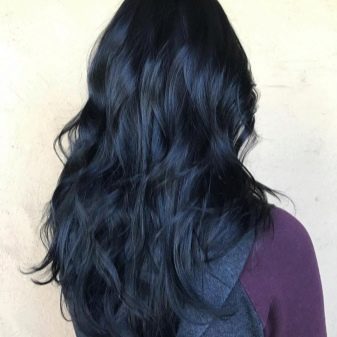
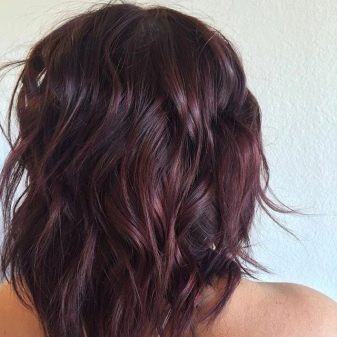
The palette of brown shades is very diverse. One of the popular shades is chocolate. Chocolate shades favorably emphasize almost any eye color, and make-up always looks brighter and more expressive. Visually, chocolate tones add volume to hair, especially curly hair.
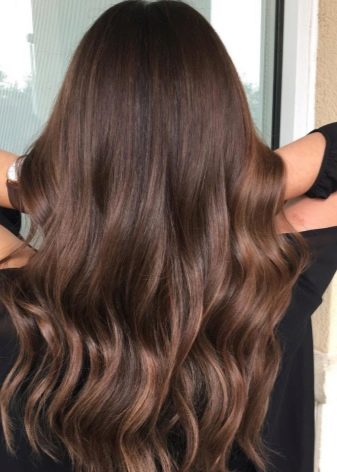
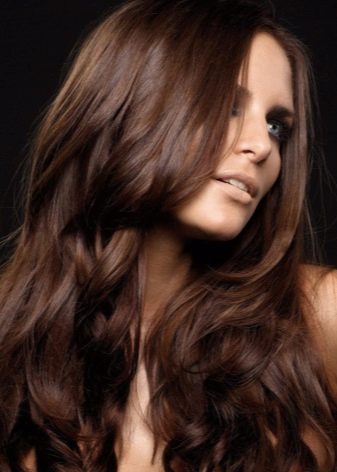
There are several chocolate shades.
- Chocolate - is a cool shade of brown. It is between dark chocolate and milk chocolate in shade.
- bitter chocolate Is a cool shade with a high pigment content. Depending on the palette manufacturer, it can be called dark chocolate or dark chocolate.
- Chocolate caramel - a chocolate shade with caramel highlights. In different palettes, it can be called caramel or almond.
The rest of the chocolate shades (for example, milk chocolate) are light tones.
Graphite is another popular dark shade. This is a deep, dark gray shade that can appear almost black in various lighting conditions.
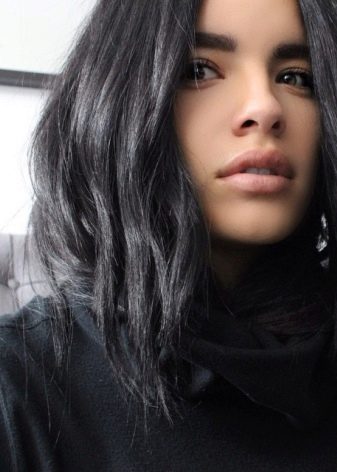
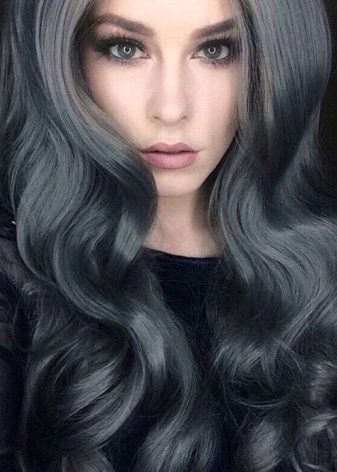
Chestnut shades are natural, and the palette includes frosty chestnut, golden chestnut and dark chestnut. These are rich, natural colors that suit almost everyone.
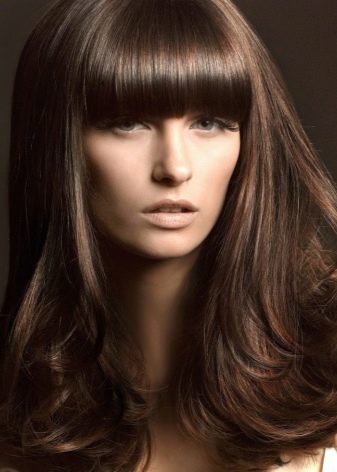
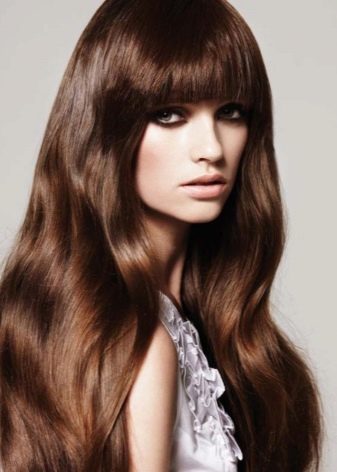
Hazelnut tones are the lightest in the dark palette. They visually soften the facial features and give the hair a golden highlights.
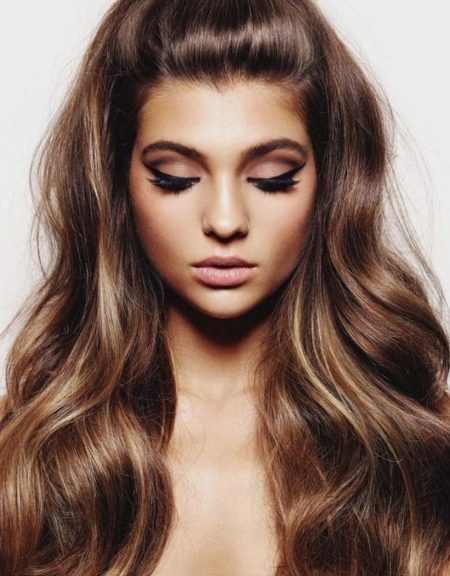
Light
Coloring in light colors also has a number of advantages:
- the image becomes lighter;
- blonde hair looks voluminous;
- with a successful selection of shades, you can look younger;
- perfectly paints over gray hair;
- you can tint your hair.
Unfortunately, when staining from dark shades to light shades, it is first necessary to carry out a clarification procedure. It is often necessary to lighten the hair more than once before dyeing, which contributes to its dryness and thinning.
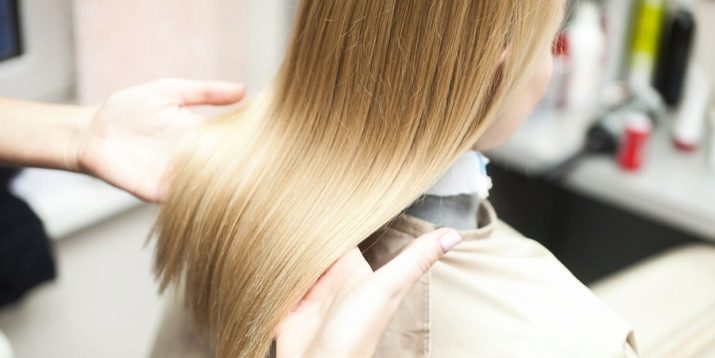
The palette of light colors is very wide, which allows you to choose a shade of paint that is in harmony with your eye color and skin color.
Milk chocolate is a popular shade of light color. It contains a large amount of pink, pearlescent and beige pigments. It will be more delicate and pinkish than the classic shade of chocolate from the dark palette.
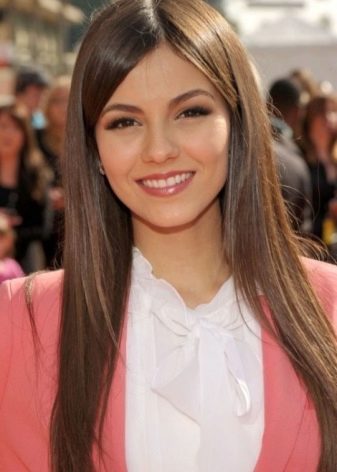
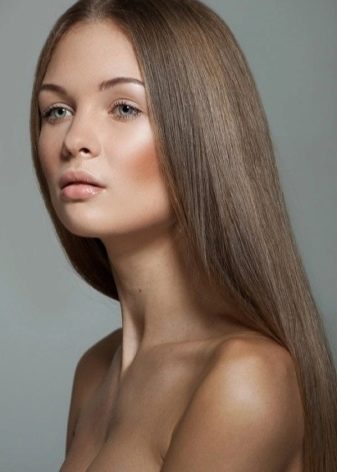
Shades of cappuccino are often used by stylists in various coloring techniques, for example, when coloring. Cappuccino comes in warm and cold tones. Frosty cappuccino has a silvery or pink tint, while caramelized cappuccino or milk cappuccino are very soft and can resemble sun-burnt hair.
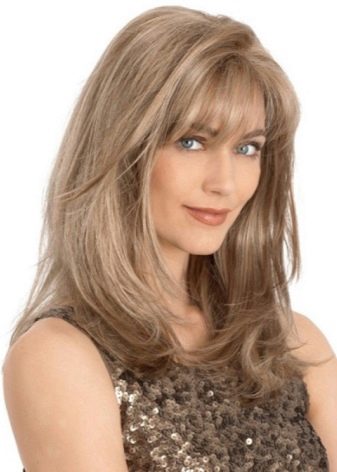
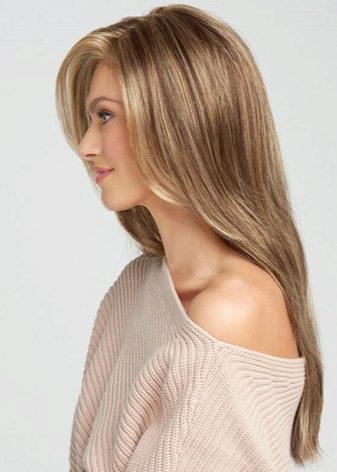
The shade of mocha is very multifaceted, in its ebb you can see gold, hazel or bronze highlights. Mocha looks good on women of any age, gives hair an even and soft fresh coffee color, and softens facial features. The mocha palette also has both cold and warm shades. Cold tones include frosty mocha, and warm tones include golden or light mocha.
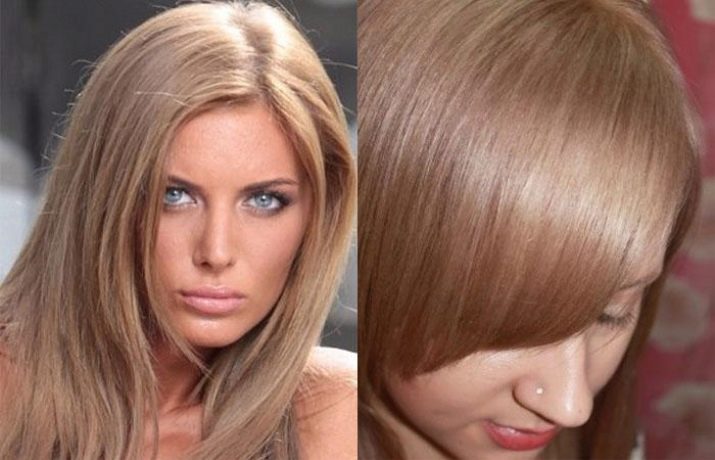
The golden shades of blond are always very popular. They suit almost everyone and look noble and expensive. Gold tones can easily mask the yellowness left over from discoloration.
Of the unusual shades in the light palette, the following can be noted:
- strawberry - it is blond with a reddish tint;
- pink - this is a cold shade of blonde with a pink tint;
- pink gold Is an interesting combination of a warm golden shade with a cool pink.
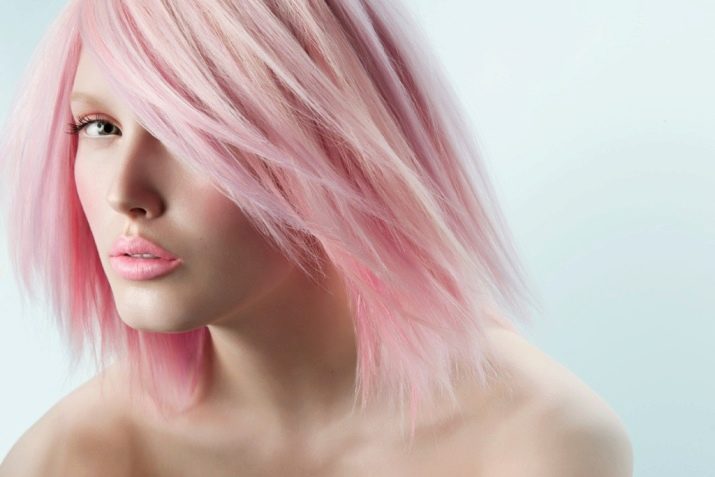
Bright
Bright hair colors have not diminished in popularity for several years in a row.Different shades of copper are very popular - it can be dark copper, bright carrot or deep golden. The palette of copper shades is quite wide - from dark saturated to light golden.
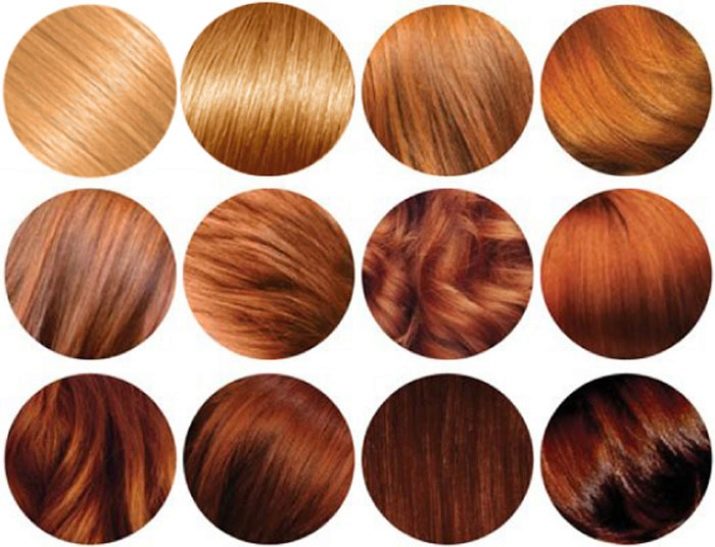
The eggplant shade is gaining popularity among younger women, although a few years ago, women of mature age were mainly painted with it, as it paints gray hair with high quality. Today, eggplant looks almost natural and looks very interesting and without banality.
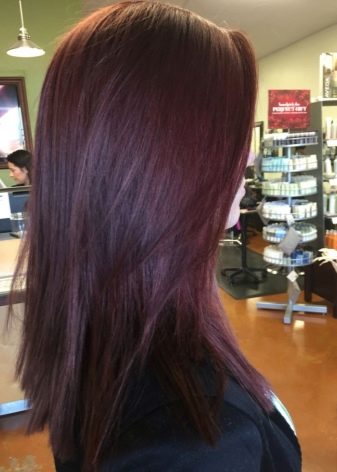
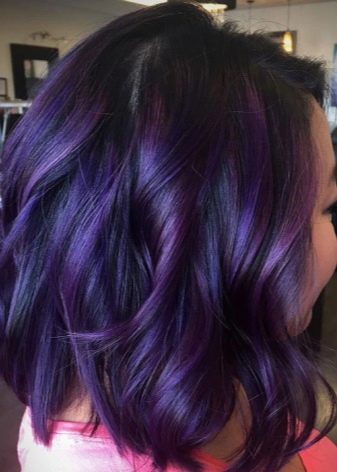
Of the classic bright shades, mahogany can be called. Mahogany is an ambiguous shade, since it is not entirely clear whether it refers to cold or warm colors. With a successful selection of the shade of mahogany, the image will turn out to be deeper and more saturated.
Popular brands
Of course, it is impossible to unequivocally name which of the paint brands is the best, because any manufacturer has pros and cons, as well as various nuances. But if we compare the most popular brands, then we can draw conclusions about which of the companies should be chosen.
Estel De Luxe
One of the most popular hair dye manufacturers in the rating is Estel. The paint of this company belongs to the professional, has a creamy texture, does not drip from the hair when dyed, has a unique formula that improves gray coverage.
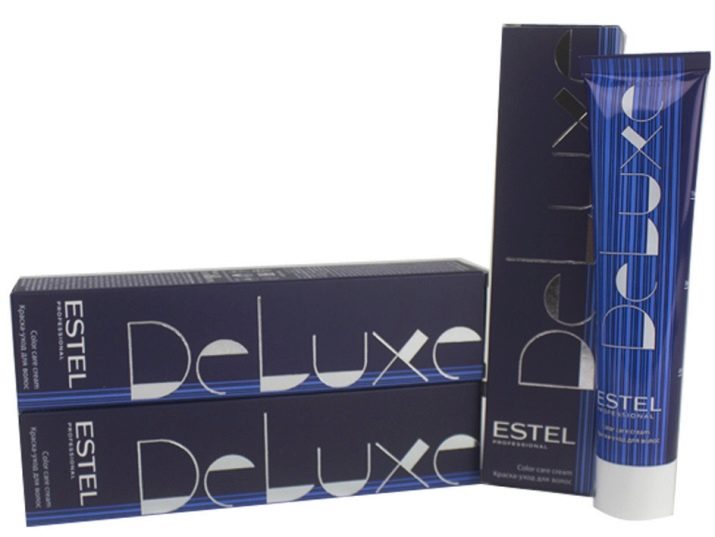
Kaaral
Kaaral hair dye is used by professionals in salons and is also suitable for home use. It has a wide palette, despite its low cost. Contains aloe vera extract, coconut oil and vitamins.
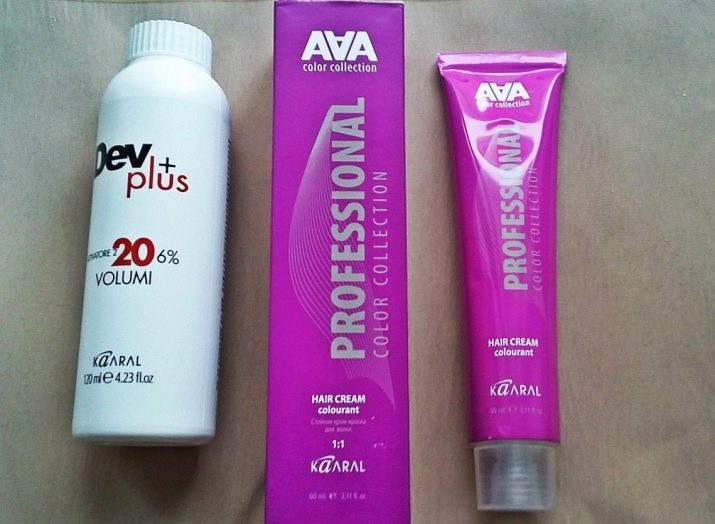
Phyto color
This brand of paint is sold only in pharmacies; the manufacturer positions it as a remedy that restores hair structure. The paint consists of more than 50% natural ingredients, so the palette is not very diverse, mostly there are only natural shades. The disadvantages include the high cost and the possibility of allergic reactions to natural ingredients.
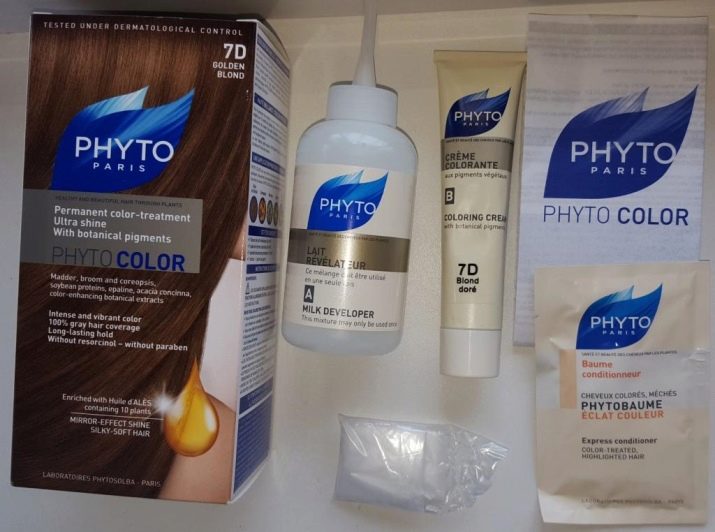
Londacolor
Creamy paint, which contains wax and lipids to protect against harmful environmental influences. The manufacturer guarantees durability up to 8 weeks after staining.
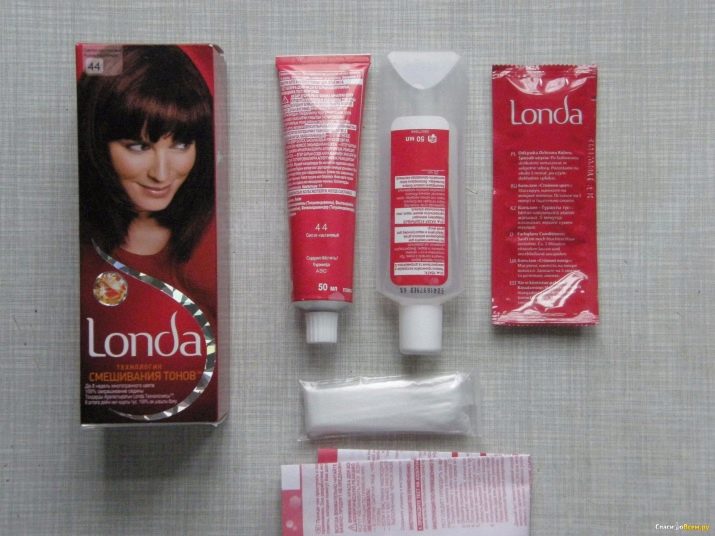
Syoss
The paint contains pigment microparticles that penetrate deeper into the hair structure. This increases the color fastness. The range of shades includes both natural and vibrant colors. To nourish the hair during coloring, a complex of vitamins is introduced into the composition.
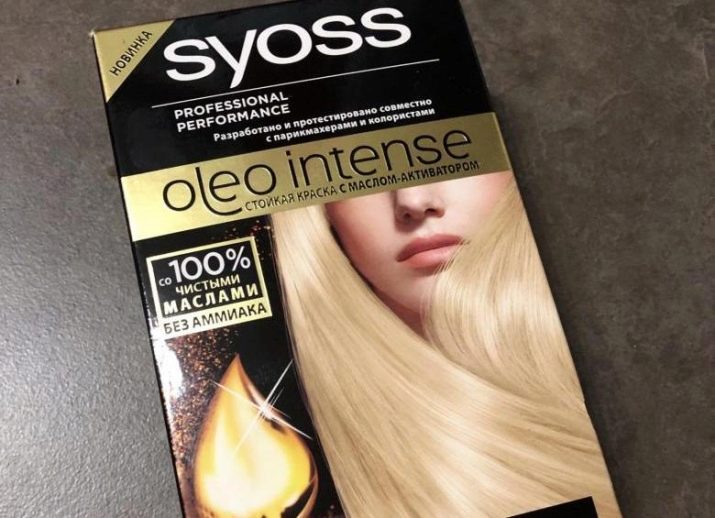
Palette
The entire line is divided into three levels of color fastness. The first level is a tint balm, and the third is a persistent cream paint. This brand has a very wide palette of shades, which allows you to select the most suitable paint tone as accurately as possible. The product paints over gray hair very well. The composition includes natural moisturizing and caring ingredients.
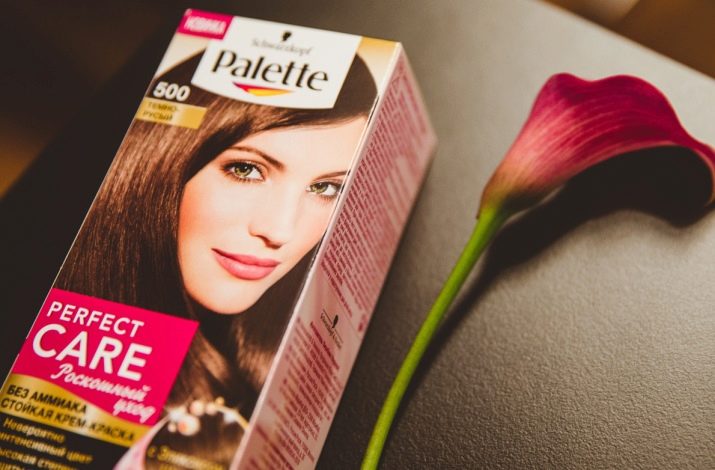
How to choose?
Finding the right shade of hair dye is often quite difficult. With an unsuccessfully chosen shade, you can visually add several years to your age or get a shade that contrasts too sharply with eye color or skin color.
There are several general rules for choosing the right shade of paint.
- Owners of warm color types in their image are more suitable for light and golden shades.
- If the skin has allergic rashes, circles under the eyes or acne, then you need to abandon all shades of red, as they will only highlight any skin imperfections.
- For people with dark brown eyes, it is undesirable to choose light shades of hair in order to avoid an unnatural look.
- In the presence of blush, it is better to refuse warm tones in coloring and pay attention to cold ones. Cool shades will dampen the excessive redness of the face.
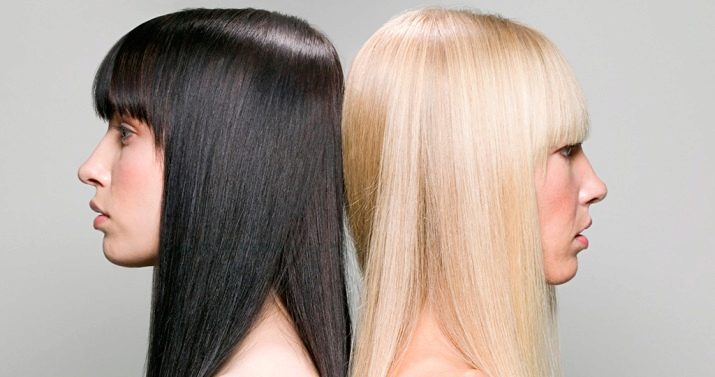
The most common way to choose a hair dye is the selection by color type. There are four color types, named after the seasons.
- Winter. This is a cold color type, it includes brunettes or brown-haired women with dark eyes and milky or olive skin. All brown shades are ideal for women with a winter color type, as well as black with a blue or purple tint. Staining platinum, straw or light blond is not recommended.
- Spring. This is a warm color type, its owners have light blond and wheat shades of hair, eyes of blue, blue or light green, as well as a light skin tone. Women with a spring color type look great with any shades of light brown hair, red-golden or warm wheat hair. Blacks, cold platinum or bright colors are not suitable.
- Summer. Cold color type. Women of this type have ashy shades of hair, fair skin, blush, blue or gray eyes. All ash tones and various shades of chestnut are suitable for this color type. It is highly not recommended to dye your hair red, golden or burgundy.
- Autumn. Owners of a warm autumn color type have red or brown hair with a red tint, amber or brown eyes with a green tint. It is recommended to dye your hair a deep brown or chocolate shade. Violet, light blond colors or black shades will be unsuccessful for staining.
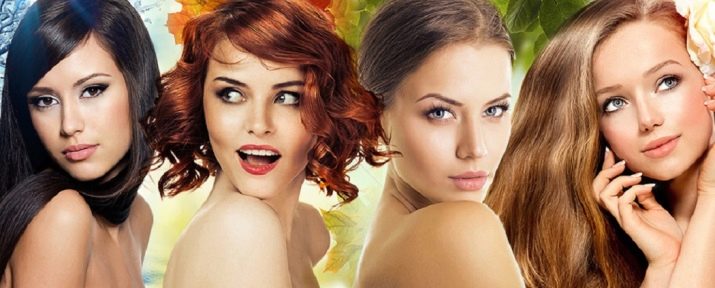
The main task of coloring is to emphasize the merits, and if you do not take into account the color type, you can get an extremely unnatural and unnatural hair color, which can distract all attention from the face and look inappropriate. On the other hand, perfect match to one color type is rare, which allows a wider palette of shades to be used for color selection. In addition, modern fashion always welcomes bold experiments and the desire to stand out from other people.
When choosing a dye for dyeing gray hair, it is important to choose persistent dyes, since a soft composition without an oxidizing agent may not cope. On packaging with paint, manufacturers often note the percentage of gray hair coloring, this also needs to be paid attention to.
Reviews
Most often, women choose hair dyes with a safe composition and care components. For most customers, the price is also important - more expensive hair dyes are more often used in salons, and more budget options are purchased for dyeing at home.
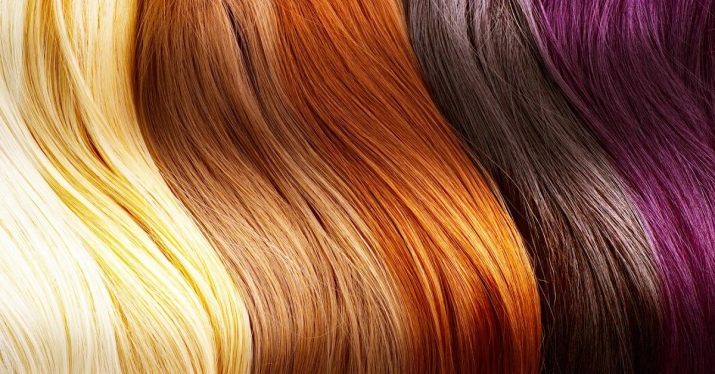
Natural shades are considered the most popular. Most women choose cold ones from dark shades, and golden and honey ones from light ones.
You will learn how to choose a hair dye from the video below.








